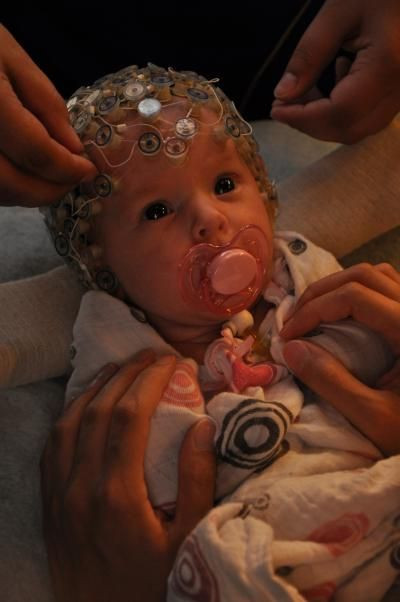Newborns Gain From Mother's Pain... In The Gym: Exercise During Pregnancy Enhances Babies' Brain Development

Once relegated to lighter forms of exercise, expectant women are now advised by obstetricians to maintain moderate exercise regimens throughout their pregnancies — for their health, and now for their baby’s.
New findings suggest that 20-minute bouts of moderate exercise three times per week during pregnancy may enhance a newborn baby’s later brain development, providing a “head start” for the progeny of health conscious mothers.
Investigators at the University of Montreal and the Sainte-Justine University Hospital Centre say those effects may last a lifetime.
"Our research indicates that exercise during pregnancy enhances the newborn child's brain development," lead investigator Dave Ellemberg, said in a statement. "While animal studies have shown similar results, this is the first randomized controlled trial in humans to objectively measure the impact of exercise during pregnancy directly on the newborn's brain.”
The Canadian researchers say they hope their study will influence public health interventions, in addition to further research on brain plasticity. “Most of all, we are optimistic that this will encourage women to change their health habits, given that the simple act of exercising during pregnancy could make a difference for their child's future,” Ellemberg said.
Presenting the findings at the annual meeting of Society for Neuroscience on Sunday in San Diego, co-investigator Daniel Curier described a sea change in how science views exercise during pregnancy. Whereas obstetricians once advised women to limit physical activity, sedentary lifestyles — and obesity — are seen as the real health concern for pregnant women and their babies.
"While being sedentary increases the risks of suffering complications during pregnancy, being active can ease post-partum recovery, make pregnancy more comfortable and reduce the risk of obesity in the children," Curier said in the statement. "Given that exercise has been demonstrated to be beneficial for the adult's brain, we hypothesized that it could also be beneficial for the unborn child through the mother's actions."

To test their hypothesis, the team studied women in their second trimester of pregnancy, randomly assigning them into two groups: one whose members exercised moderately for three 20-minute sessions per week, and one with women instructed not to exercise. Following the births, newborns were assessed by electroencephalography between the ages of 8-12 days, investigator Élise Labonté-LeMoyn said.
The investigators placed 124 soft electrodes on each infant’s head before waiting for them to fall asleep on their mother’s laps, then they measured auditory memory via the brain’s unconscious response to sound.
"Our results show that the babies born from the mothers who were physically active have a more mature cerebral activation, suggesting that their brains developed more rapidly,” she said in the statement.
Yet, old wives tales die slowly. Thirty-five-year-old Lea-Ann Ellison, an American "Cross-Fit" enthusiast, drew international scorn in late September after posting photos of her weight-lifting routine on Facebook. Although extreme, doctors say, Ellison’s heavy lifting posed no danger to her unborn child.
According to guidelines from the American College of Obstetricians and Gynecologists, a woman’s overall health — including obstetric and medical risks — should be evaluated before prescribing an exercise program. “Generally, participation in a wide range of recreational activities appears to be safe during pregnancy; however, each sport should be reviewed individually for its potential risk.”
In Ellison’s case, she had simply maintained her previous exercise regimen throughout her pregnancy, a practice doctors deem safe for mother and child.
Below is a YouTube video featuring Ellison:



























